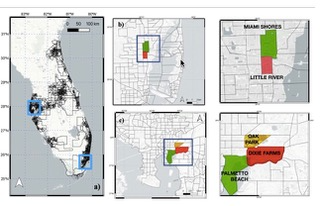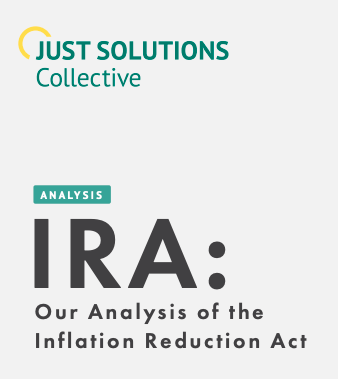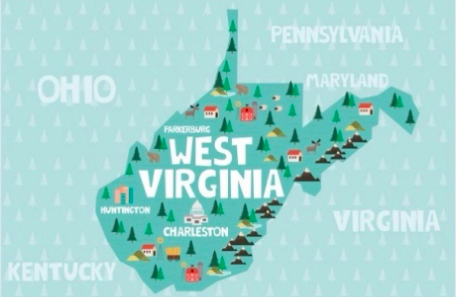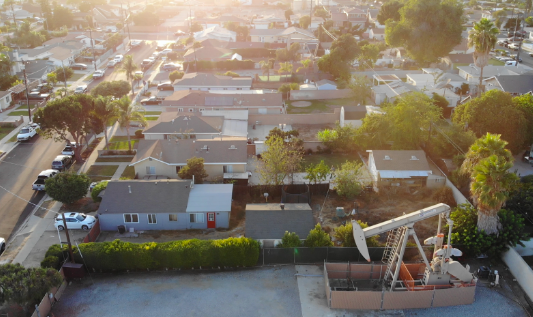Resources
Search below for resources covering the intersection of climate engagement, social science and data analytics.
RESULTS
Climate Deep Canvassing Report
Kentuckians for the Commonwealth ran a Climate Crisis Deep Canvassing Project in Louisville, Bowling Green, and Hazard, Kentucky where they knocked on thousands of doors and had more than 600 conversations with low-income communities and communities of color. They developed a written report that synthesizes the lessons, themes, and best practices from their on-the-ground experience to inform future canvassing trainings and program design.
Supported by the Climate Advocacy Lab's Climate Justice Microgrant Program.
Measuring, mapping, and anticipating climate gentrification in Florida: Miami and Tampa case studies
Recognize the disruptive potential of climate gentrification. This study looks at the current and potential impact of climate gentrification on low- and middle-income renters in Miami and Tampa, as areas away from the immediate coast become more desirable due to a growing awareness of climate risks. The authors have created a Climate Gentrification Risk Index to help local officials identify areas vulnerable to climate gentrification and plan for long-term land use changes.
California activists paved the way for defining climate change as an air pollution problem—now it's federal law. Connecting climate change with something visceral and dangerous brings more immediacy to a problem that’s often seen as unfolding far away or in the future, even though it’s causing suffering now. “Climate pollution” is becoming common on the websites of green groups and atop news stories. It wasn’t always a popular move to link global warming with air quality. Environmental justice activists in California tried to popularize the phrase “climate pollution” starting around 2012. Framing climate change as an air quality problem is good persuasion strategy (as research shows), and it also validates long-standing concerns from communities that are threatened by industrial pollution.
Voters Say Lawmakers Should Listen to Communities Over Fossil Fuel Interests
Environmental advocates can strengthen their argument on permitting reform by framing it as an issue of communities vs. corporate interests. Voters overwhelmingly believe that input from impacted communities should be prioritized over input from industry association groups as Congress considers changes to the permitting process for energy projects. Voters support the Environmental Justice for All Act by a greater than three-to-one margin (69% support / 20% oppose) after reading a brief description of it. By a 65%-22% margin, voters prefer that lawmakers prioritize feedback from impacted communities over industry association groups like the American Petroleum Institute when considering changes to the permitting process. By a 56%-35% margin, voters say that President Biden should prioritize permitting for clean energy projects over fossil fuel projects. Just 16% of voters believe that permitting reform should be attached to the annual government spending bill, compared to 59% who say it should be considered as a standalone bill and 10% who say it shouldn’t be considered at all.
IRA: Our Analysis of the Inflation Reduction Act
The Inflation Reduction Act (IRA) will invest $40 billion total, including $27 billion in direct spending, towards environmental justice communities and low-income residents—despite supporters claiming that the amount is $60 billion. Just Solutions Collective performed its own section-by-section analysis of the IRA’s text, adding up appropriations and other tailored spending to produce its own calculation. In total, the IRA includes $228 billion in appropriations and an additional $324 billion in tax expenditures. Direct appropriations in the IRA for environment, climate, and energy total $145 billion. This is dwarfed by the $270 billion provided in energy-related tax expenditures, through a variety of tax credits intended to incentivize primarily the private sector to invest in different aspects of the alternative energy economy: from mining companies extracting lithium to factories manufacturing inverters to refineries making biomass-based jet fuel to utilities installing solar arrays.
Building long-lasting grassroots power requires centering concrete issues and the humanity of individuals you’re organizing. Many organizations in West Virginia are cultivating organizers, building organizations that can sustainably organize local communities according to their needs for years to come, incorporating mutual aid, and more, in an effort to win and wield political power. In this article, The Forge contributor Mat Hanson discussed organizational strategies with multiple people involved in grassroots power building in West Virginia: Katey Lauer, co-chair of West Virginia Can’t Wait; Nicole McCormick, a founding member of the West Virginia United caucus and rank-and-file leader in the successful teacher’s strike; Dr. Shanequa Smith of Restorative Actions and the Black Voters Impact Initiative; and Joe Solomon, the co-founder and co-director of Solutions Oriented Addiction Response (SOAR), a volunteer-based organization that advocates for harm-reduction strategies to the opioid crisis.
Values-Based Organizing Training
In this training, you will glean insights from Partnership for Southern Equity and their values-based organizing model, contextualized by their short film The 4th Arm which explores how centering values and lived experience is critical to the work of organizing and central to our ability to achieve energy and climate justice. This training will help you:
- Develop the skills necessary to be an effective community organizer
- Gain an understanding of value-based community organizing
- Deepen your understanding of allyship and allies
- Explore what it means to build power and "systems change"
Historic Environmental Justice Victory: City of Los Angeles is creating a pathway to phase out existing oil and gas wells
Residents, community organizations, and health care practitioners organized for over a decade to protect the health of residents on the front lines of urban oil extraction in L.A. In January 2022, the Los Angeles City Council voted unanimously to draft an ordinance to prohibit all new oil and gas drilling and to phase out existing drilling operations throughout the City of Los Angeles. This resource is based on an interview with Wendy Miranda (she/they), a community leader with Communities for a Better Environment (CBE) and resident, about the historic victory. The organizing strategy to get this victory involved various lobbying efforts, rallies, press conferences, petition collections, a wide range of community/organization endorsements, phone banking, and social media outreach. Overall, frontline residents providing public comments and sharing their personal experiences were some of the strongest and most powerful tactics. STAND L.A. will continue to be part of the process to help draft an ordinance and direct the City of Los Angeles on how to lead a genuine community participation process. Miranda shares that this victory is proof that frontline communities can lead the change toward a just, equitable transition to a clean energy future.
How New Orleans neighborhoods are using nature to reduce flooding
New Orleans is in the midst of a green infrastructure revolution. In smaller neighborhoods like Hoffman Triangle, residents are leading the way, house by house, block by block. Year-round, New Orleanians deal with a chronic kind of inundation researchers vaguely call “urban flooding.” The goal of “nature-based” (green infrastructure) solutions is to reduce the pressure on pipes and pumps by using landscaping to slow the flow of water. Projects can store water so it soaks into the soil or slowly flows into a storm drain at a rate the system can handle. Plants can also absorb water into their roots, leaching out pollutants in the process. They also come with various added benefits like improved water quality, mosquito control, and increased open space to cool the sweltering Louisiana air. The Urban Conservancy is one organization in particular doing lots of work on nature-based infrastructure in New Orleans.
A Decade Of Successes Against Fossil Fuel Export Projects In Cascadia
73% of initially planned oil, gas, and coal export projects in the region have been cancelled since 2012. Fossil fuel executives from dozens of companies once seemed to be salivating over the idea of exporting massive quantities of gas, oil, and coal from the Cascadia coast—but local communities, Tribes, environmentalists, and local governments rejected calls to turn Cascadia into a fossil fuel export terminal. They protested projects’ abrogation of Indigenous sovereignty, the risk of oil spills and damage to sensitive ecosystems, the pollution spewing from coal trains, the climate harms of extracting, transporting, and burning hydrocarbons, and the safety hazards of transporting flammable fuels through populated areas—and for the most part, they’ve won. Since 2012, fossil fuel interests have schemed more than 50 large projects to export coal, oil, gas, or their derivatives from Cascadia’s coast in British Columbia, Oregon, and Washington, and today, 40 of those—a whopping 73%—have been canceled by project backers who faced local opposition, see-sawing energy prices, and regulatory hurdles.
Pagination
- Previous page
- Page 2
- Next page





